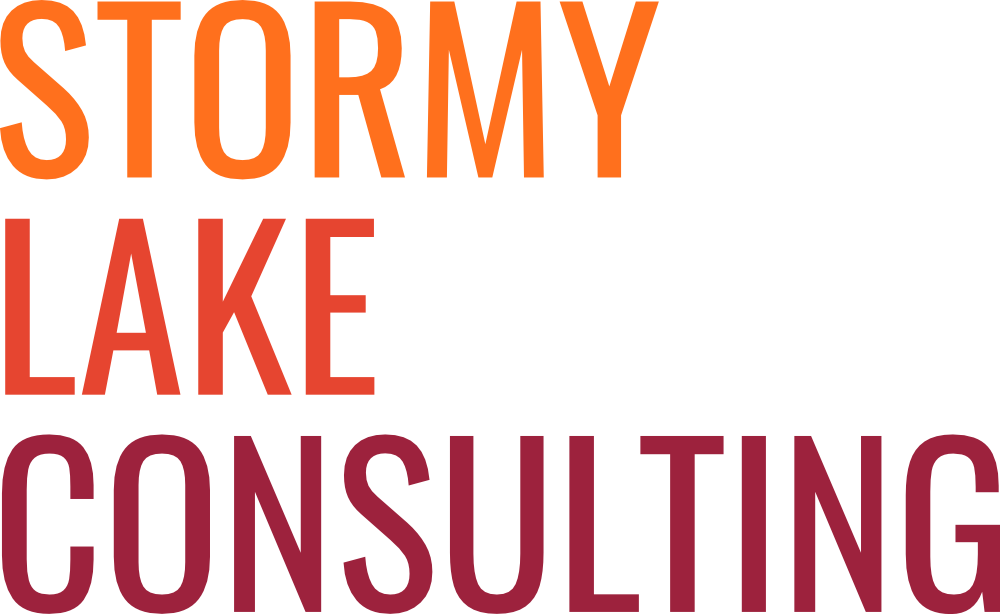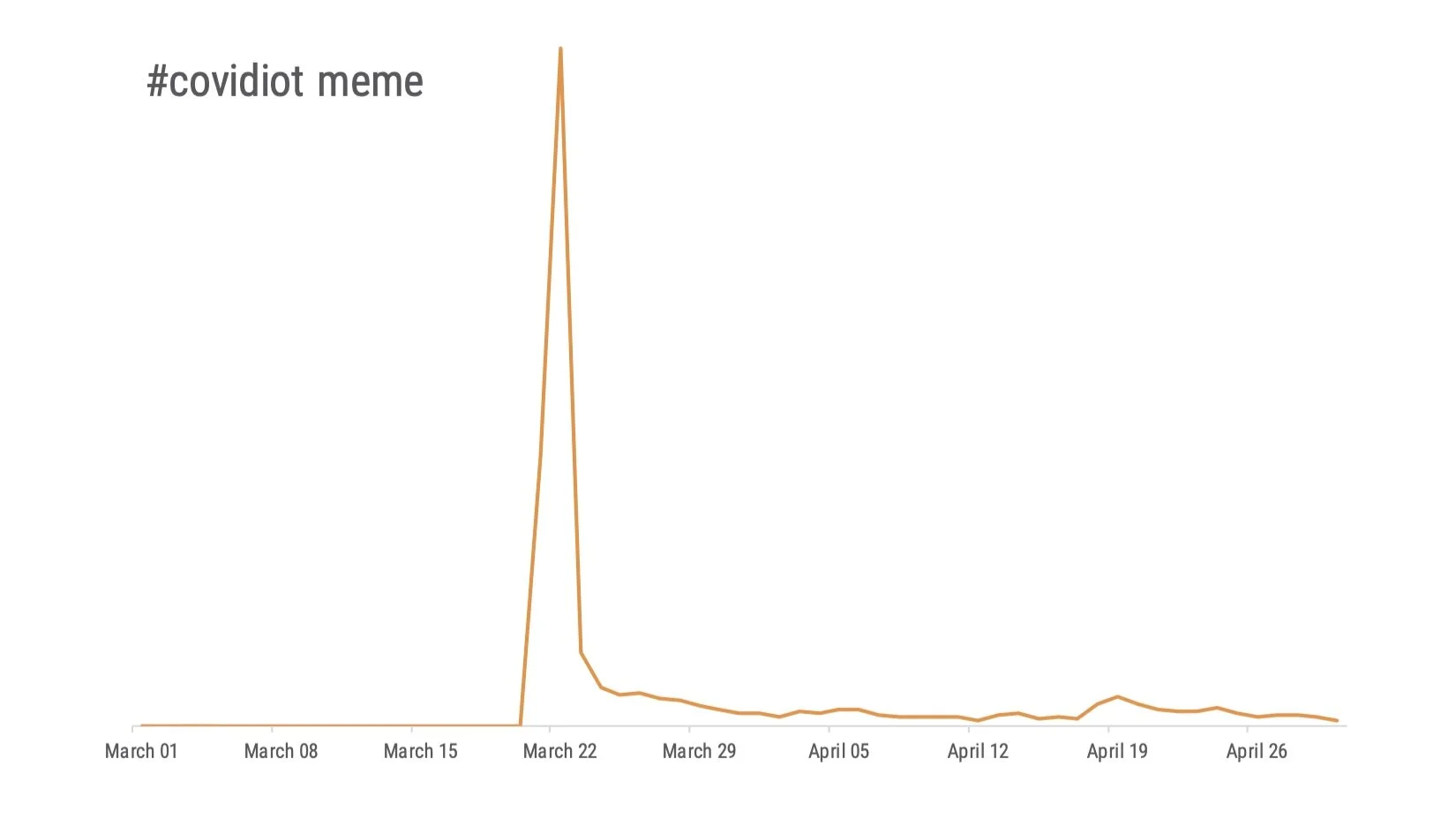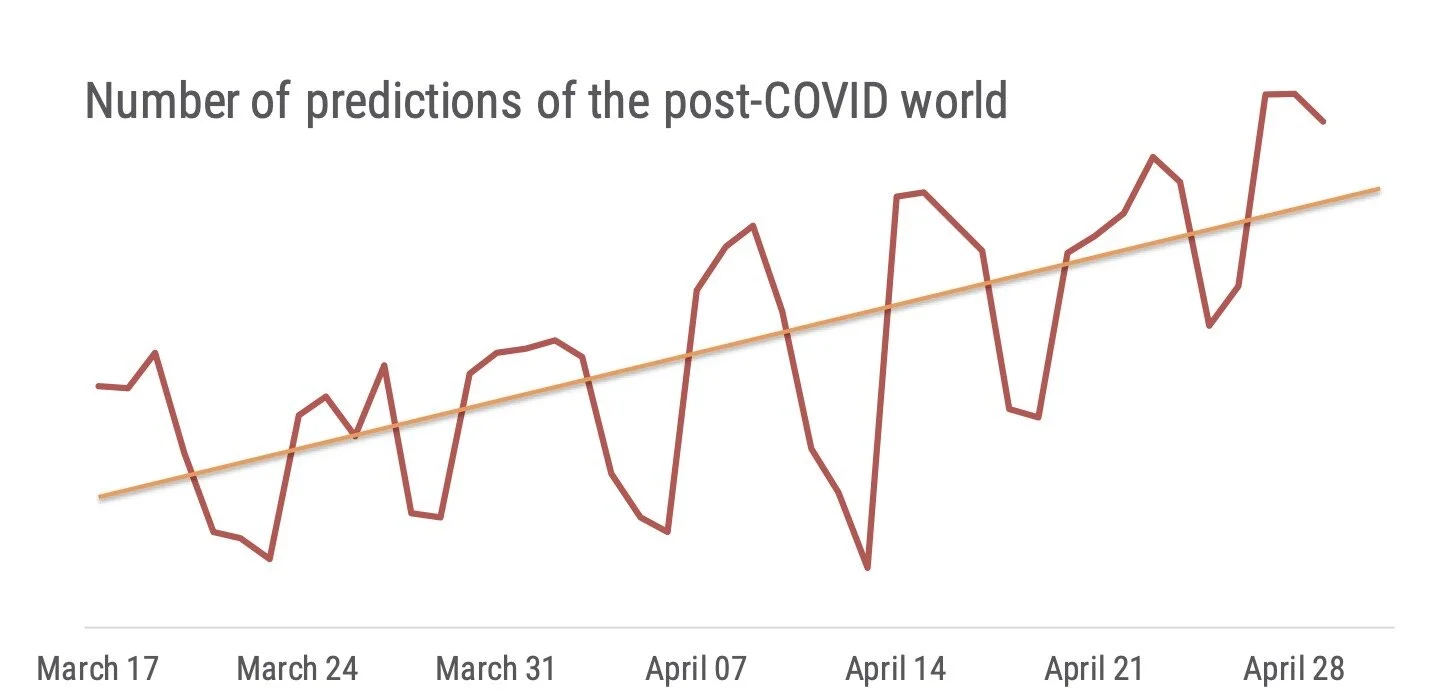Weekly COVID-19 Update: The Covidiot Edition
Do you have a Covidiot in your life? Do you see them all around you?
John Ellard from the University of Calgary asked if social listening could identify an increase in social shaming. Anecdotes on the internet abound. The number of news stories is growing. It appears that enforcement is primarily self-monitored, somewhat socially shared and minimally enforced by authorities.
The term “covidiot” exploded online on March 21/22 but faded quickly.
This is a classic meme pattern, not an enduring social trend. More generally, people are shaming others online, both for failing to follow COVID guidelines or for following them too enthusiastically. However, we did not see evidence that people are being shamed any more than they were before the pandemic. The shaming has instead shifted to the topic of the day. Doubtless this is because so much of the online conversation around guilt and shame is political. There are always lots of people who think their ideological opponents should be ashamed of themselves.
The potential rise of social shaming is an important issue as it could have long-term reverberations through our culture. This is an example of the increasing number of questions people are asking about how life will be different after this is over. It has been growing steadily over the past seven weeks.
Honestly, we don’t have a clue.
Our collective challenge is that we are horrible at predicting the future, even our own. The most readable social psychologist I know is Dan Gilbert. Gilbert’s research (with Jordi Quoidbach and Timothy Wilson) showed that no matter how old we are, we think we’ve changed a lot in the past and will change very little in the future. Our projections are based very much on how we see ourselves in the moment.
Another group that lives in eternal optimism are entrepreneurs and start-up businesses. Terry Rock, CEO of Platform Calgary, asked us if the current environment was spurring an epidemic of entrepreneurialism or if people were distancing themselves from the fragility of a self-employment world.
Looking back to October, there has been a slight decline in the number of people discussion starting a new business and sentiment has remained consistent. But this does not seem to be significantly affected by COVID-mania.
90% of start-ups fail, most often in the first two to five years. While money and experience are important, analysis of successful start-ups shows that passion for the idea and vision for the future are more important.
If you’re in the third trimester of your career and think this topic is not relevant, take heart. A 60-year old starting a new business is 3 times more likely to succeed than a 30-year old. Boomers 1, Millennials 0. Clearly 60-year olds do not lack passion or vision. Shout-out to Embroker for the start-up statistics.



